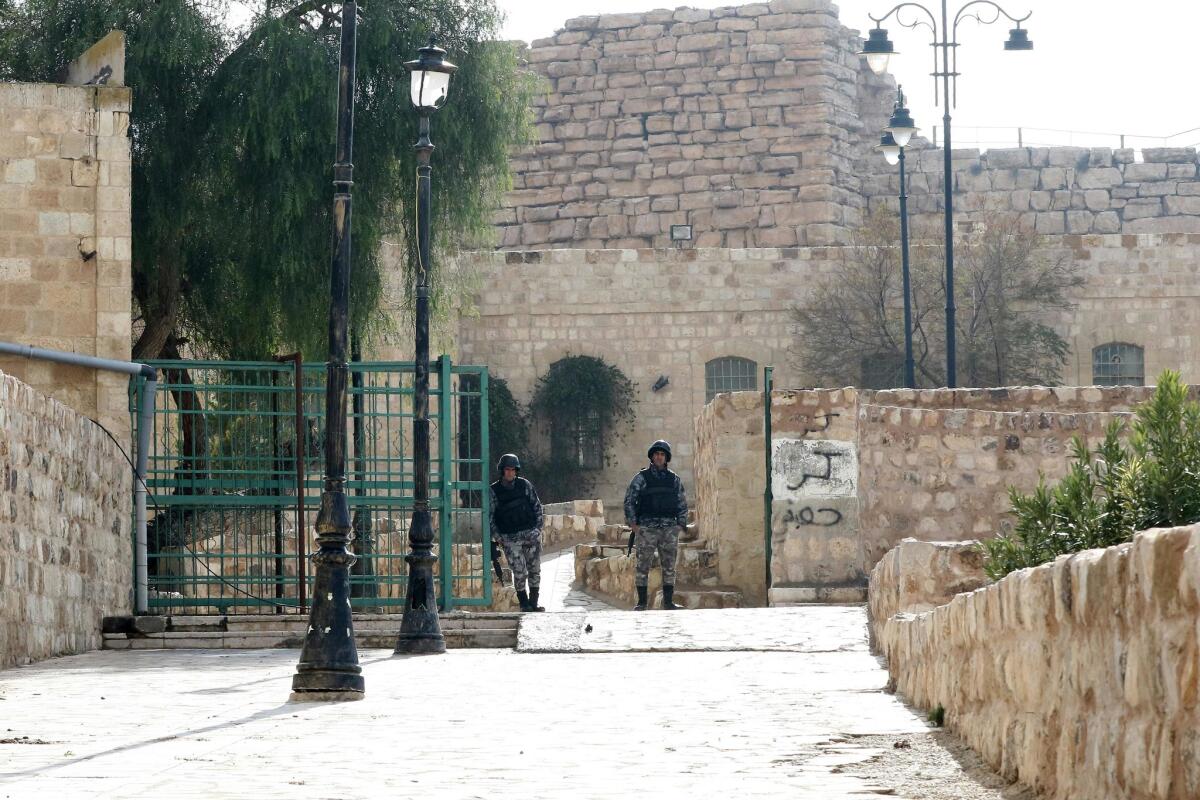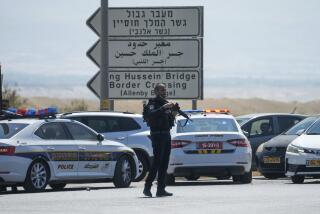Jordan says Karak gunmen apparently planned more attacks

Reporting from AMMAN, Jordan — Gunmen who killed 10 people, including a Canadian tourist, in a series of shootings apparently had planned additional attacks, Jordan’s interior minister said Monday, noting explosives belts found in the attackers’ hideout.
Sunday’s shootings were the bloodiest and most high-profile attacks in Jordan in recent memory. At one point, security forces and the armed men were locked in a standoff at a popular tourism site, a Crusader castle in the central town of Karak.
In all, seven members of the Jordanian security forces, two local civilians and the Canadian tourist, a 62-year-old elementary school teacher identified as Linda Vachter, were killed. Thirty-four people were wounded, including Vachter’s adult son, Chris.
Four gunmen were killed in the confrontation.
There was no immediate claim of responsibility for the shootings.
Jordan faces homegrown extremism, with hundreds of Jordanians fighting alongside other Islamic State militants in Iraq and Syria and several thousand more supporting the extremist group in the kingdom. Jordan is a key U.S. ally and a member of a U.S.-led military coalition fighting Islamic State.
Jordanian Interior Minister Salameh Hammad told reporters Monday that the explosives belts suggest that the attackers might have prepared to carry out additional assaults.
A series of attacks over the last year have challenged the pro-Western kingdom’s claim to be an oasis of calm in a region increasingly threatened by Islamic extremists.
Political analyst Labib Kamhawi said rising unemployment and poverty in Jordan have made the population more vulnerable to recruitment by extremist groups.
The high-profile Karak shootings, including the standoff at the Crusader castle, highlighted Jordan’s vulnerability to such attacks, he said.
“People feel the response of the government was weak and that ... the government is not prepared to counteract such actions,” he said. “Previous operations were extremely limited, even in their targets, and were not trying to involve civilians.”
Kamhawi said Jordan’s claim to be an island of stability in a turbulent region “is not valid anymore.”
The attack was likely to further harm Jordan’s battered tourism industry, on the decline since militants from Islamic State seized control of parts of neighboring Iraq and Syria two years ago.
ALSO
Jordan shootings kill 9, including Canadian tourist
‘No walk of society is immune’: Iran confronts a growing drug problem
In a former factory just east of Aleppo, Syrians wait to return home
More to Read
Sign up for Essential California
The most important California stories and recommendations in your inbox every morning.
You may occasionally receive promotional content from the Los Angeles Times.










